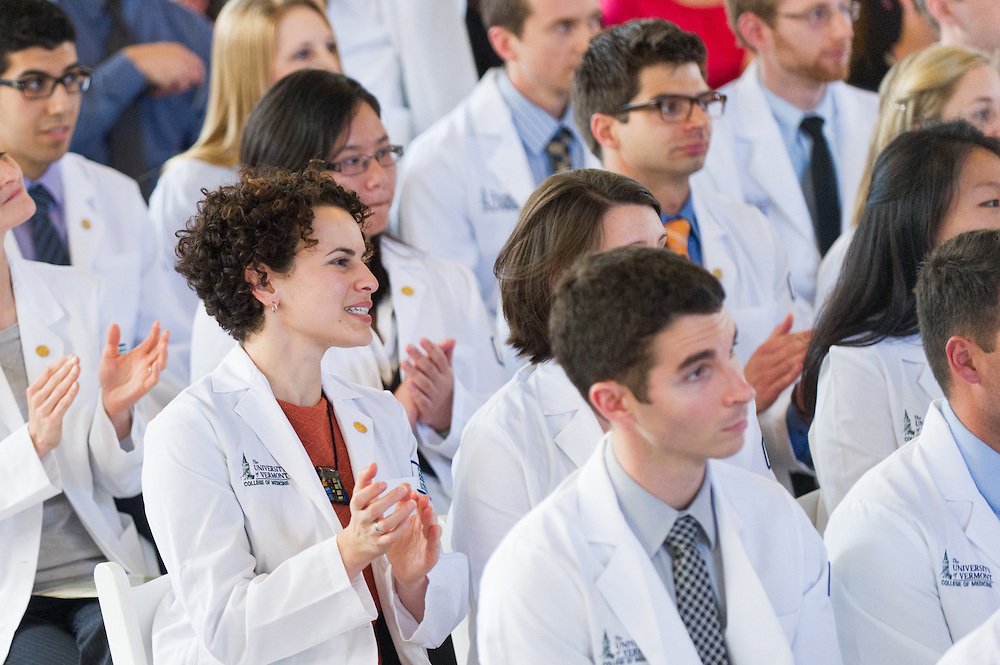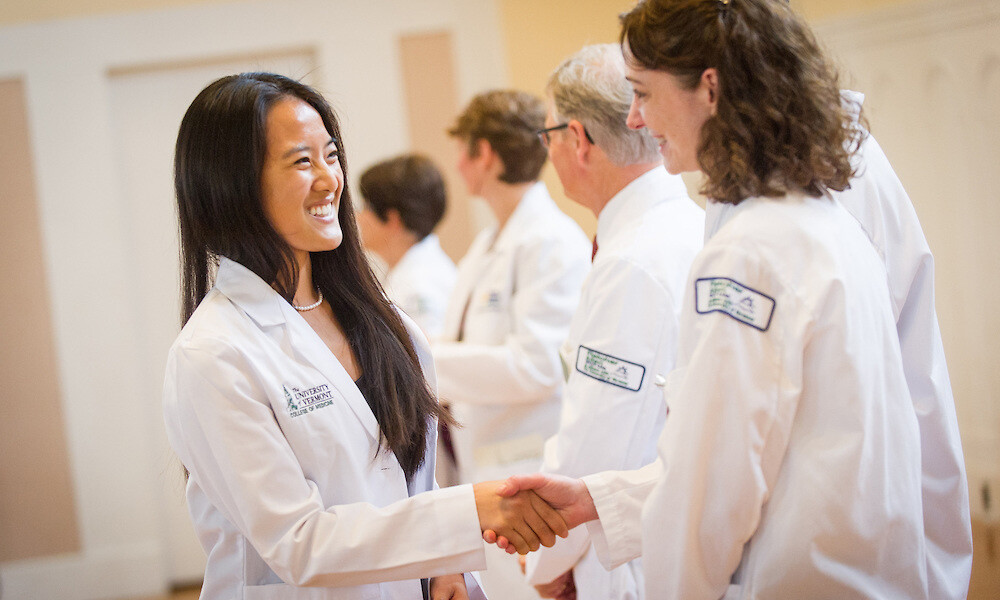By Carolyn Shapiro
Students who apply to medical school often seek a checklist of steps they can take to boost their chances of admission.
Janice Gallant, M.D., associate dean for admissions at the University of Vermont College of Medicine, says applicants should throw that checklist away. Instead, she recommends they think hard about why they want to become doctors and pursue experiences that reflect their enthusiasm for learning about medicine and caring for people.
Shadowing an emergency room technician, volunteering at a soup kitchen, or traveling abroad – even a summer job in a community health clinic or work on a research project – are great examples of activities that can help confirm a passion for medicine.
“What you have to do is figure out what excites you, what ignites you,” Gallant says. “We don’t want to tell people what to do.”
Getting Into Medical School Requires a Breadth and Depth of Experience
The UVM College of Medicine does have requirements that include the same undergraduate science courses needed by most U.S. and Canadian medical schools, and has general standards for grades and MCAT (Medical College Admission Test) scores. Applicants can find those guidelines on the College’s Admissions website.
Candidates who stand out from the pack are those who show a willingness to challenge themselves, put themselves in a culturally unfamiliar situation, or pursue an experience that changes them or opens their eyes, Gallant says. The admissions committee looks for resilience, such as an experience in which an applicant has successfully managed to overcome a hardship.
“What I tell people is depth and breadth of experience is valuable to bring to medical school,” she says.
Prospective students shouldn’t assume they won’t get accepted if they don’t fit a certain mold. UVM’s medical school embraces racial, ethnic, age, gender, geographic and socio-economic diversity. Admissions officers understand that some students will have travel opportunities, while other students will find valuable experience closer to their homes, Gallant says. No one way is best for everyone.
“Hopefully, medicine is made up of unique individuals with diverse experiences and backgrounds, which create an exciting and enriching environment for everyone,” she says.
Admissions at UVM
In the past year, the College of Medicine has retooled its admissions process to better extract ideal students from the stacks of applicants. Out of more than 6,000 applications the College receives each year, it interviews about 10 percent of those prospective students.
Using the 15 “core competencies” developed and endorsed by the Association of American Medical Colleges, the admissions committee does a “holistic” review. That includes assessment of a range of intrapersonal and interpersonal skills – from oral and written communication and teamwork to service orientation and ethical responsibility.
“If someone says, ‘I genuinely want to help people,’ we will see on the application that they have really searched to have meaningful service experiences,” Gallant says.
To back up these reviews, the College changed its interview process this year from a single, 45-minute talk with one person to a series of “multiple mini interviews” – six-minute sessions with nine interviewers that include faculty, residents and current medical students.
“We just sort of threw away the playbook,” Gallant says of the new admissions format, which she believes is a better way to predict the success of students well beyond the application process.
“Their career is not getting into medical school,” she says. “Their career is to prepare to be a an excellent doctor who serves patients, families and the community.”
Carolyn Shapiro is a freelance writer.





